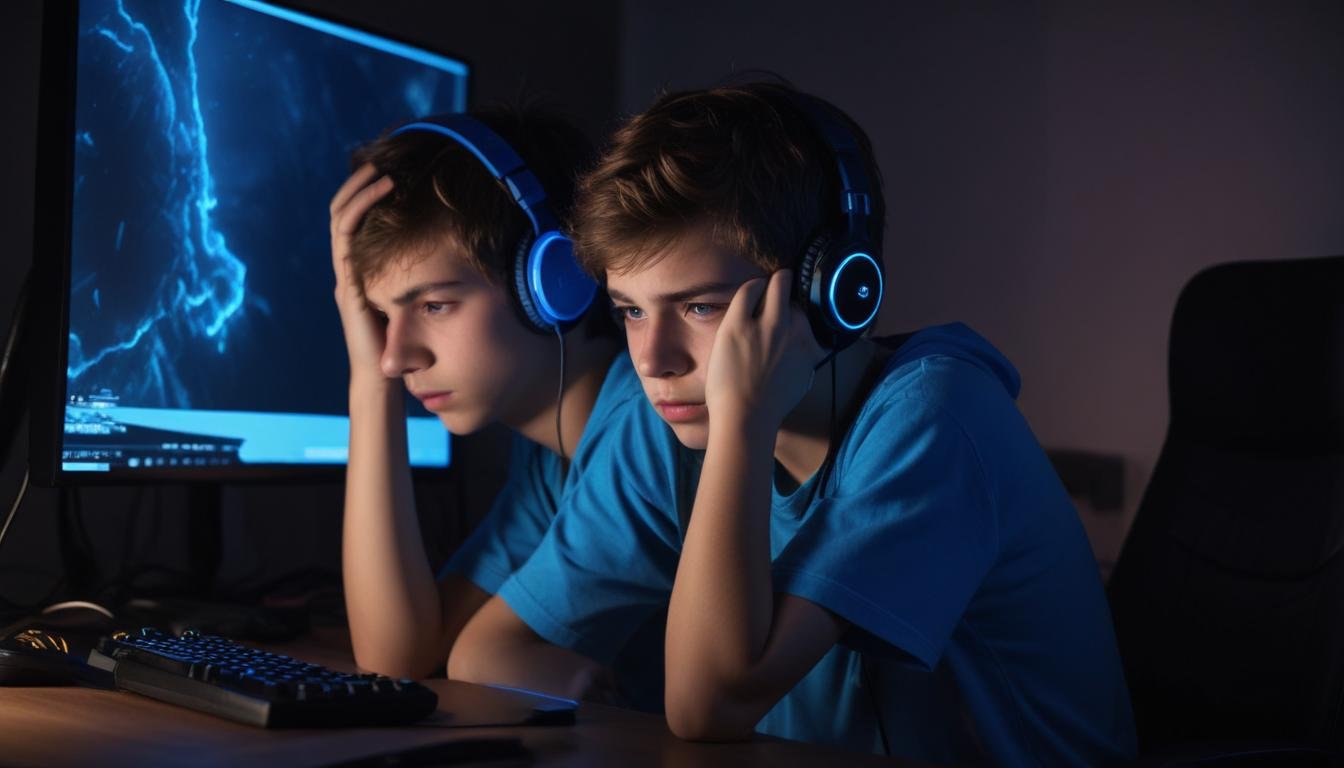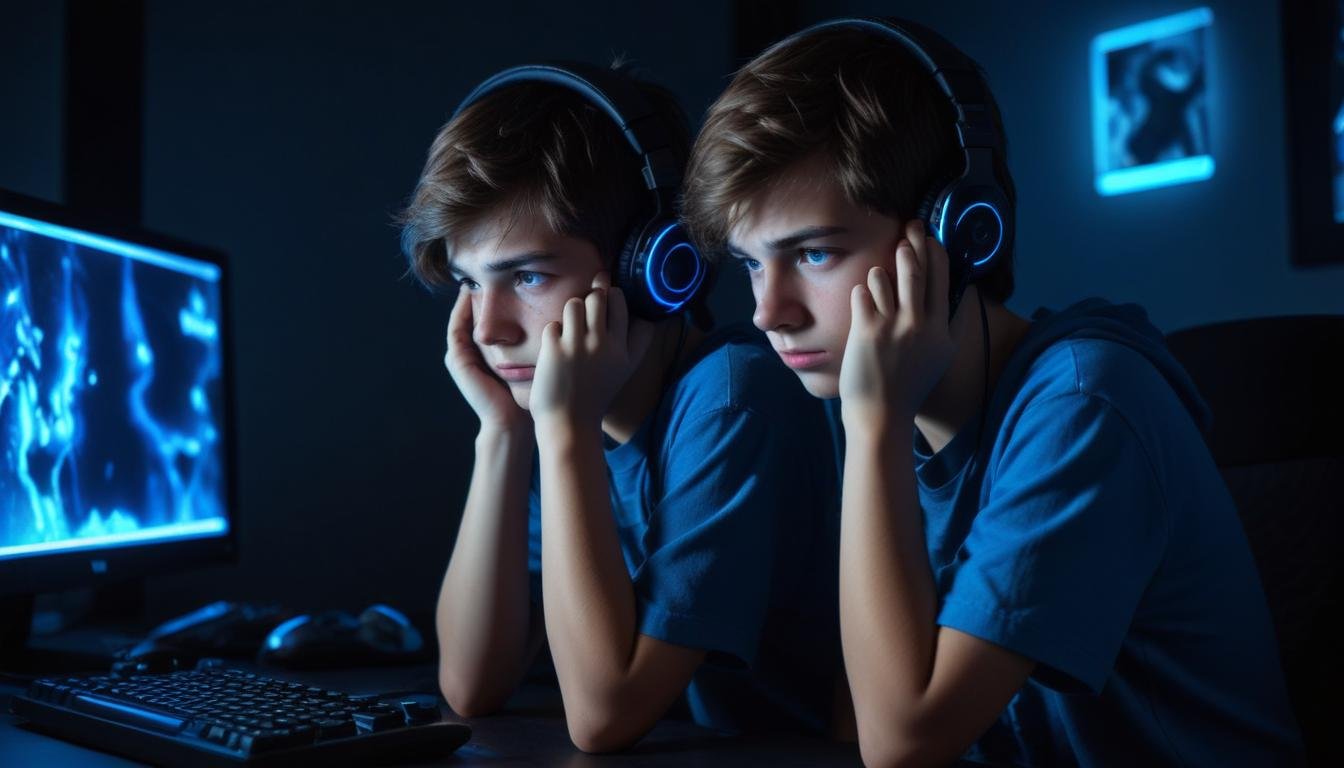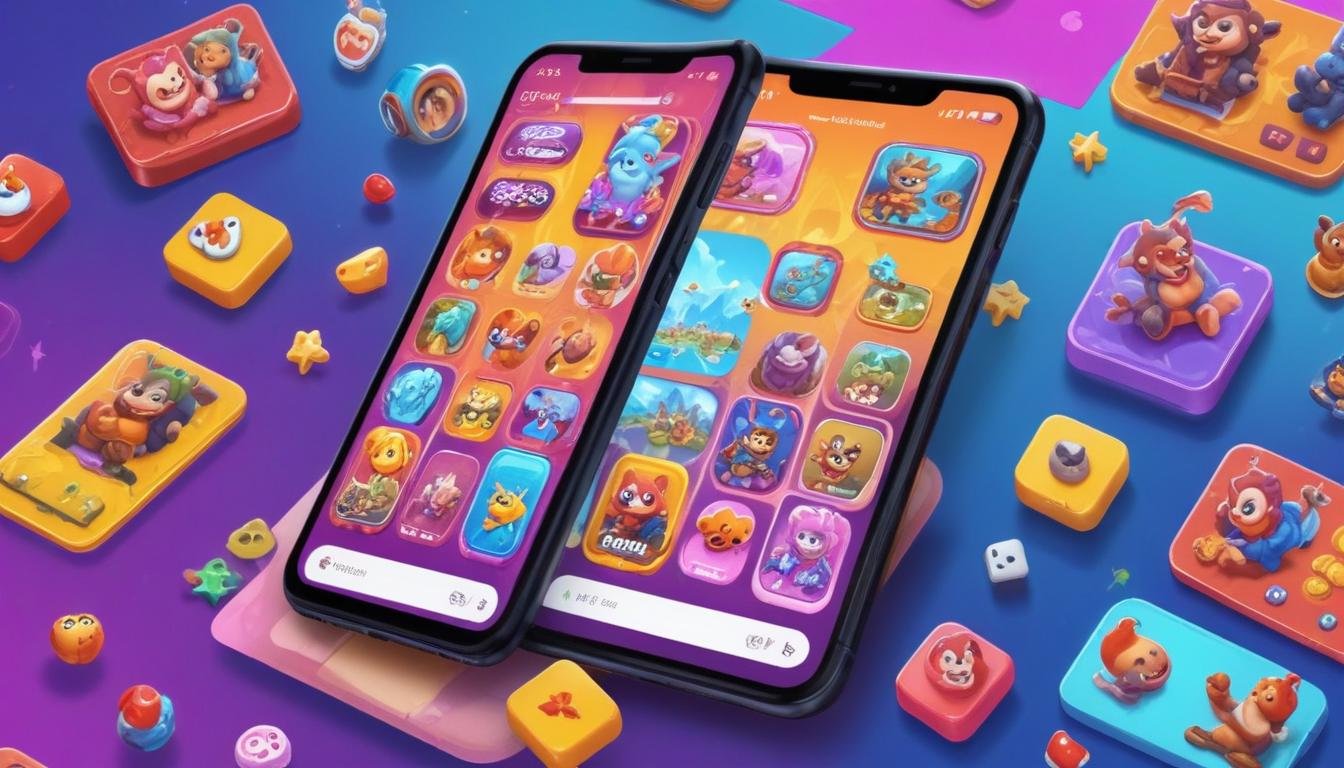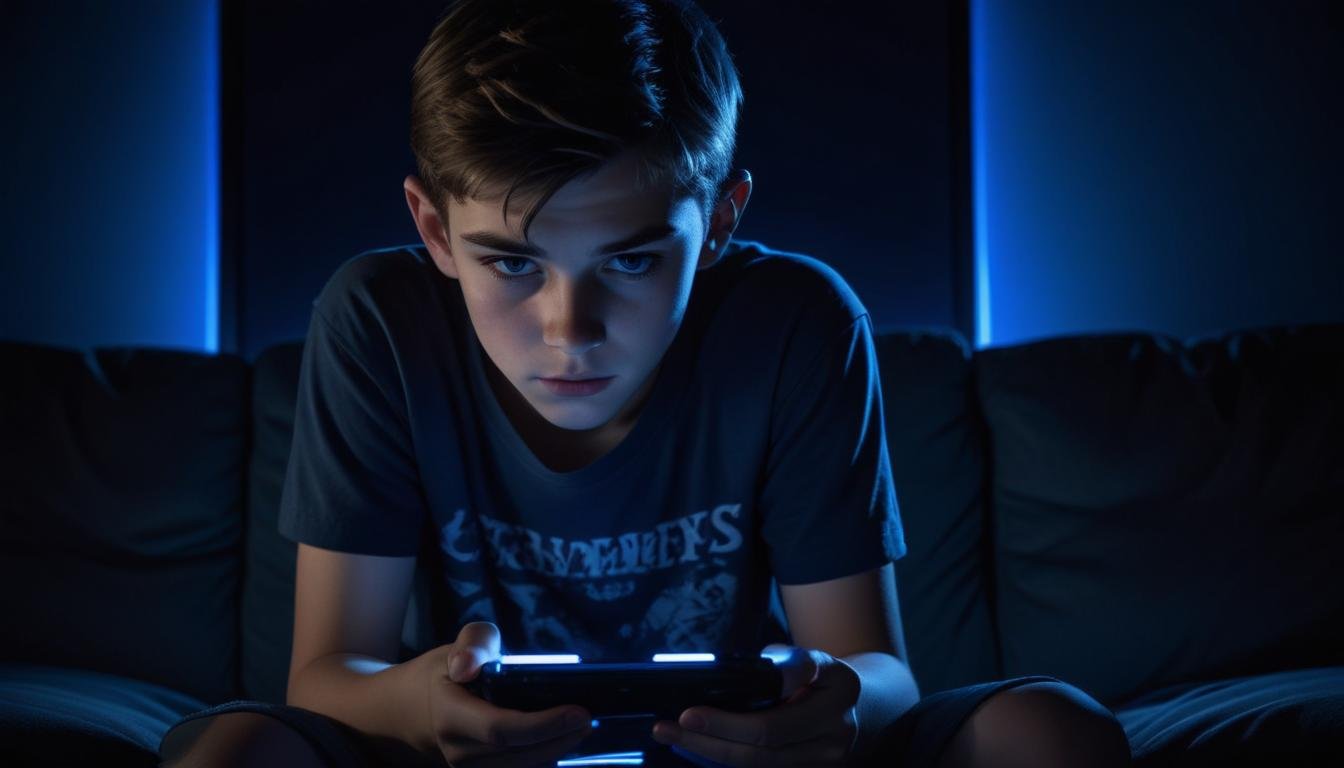Understanding Online Trolling in Teen Gaming
When I think about online trolling in teen gaming, it really hits home for me. I have four amazing kids who love to play video games. My oldest, Robert, is 14 and already in high school. He often tells me stories about his gaming adventures, but sometimes he shares the not-so-great parts too. He has experienced some online bullying, which can leave a kid feeling hurt and confused. I remember one time he told me about a game match where someone kept calling him names. It made me realize how real and upsetting trolling can be. It’s not just a silly joke; it can affect a kid’s day and how they feel about themselves.
My youngest boys, Mark and Matthew, are only 8, and they just started playing games online. I want to protect them from the harsh side of the internet. It makes me think about how important gaming safety is for our kids. I remember watching them play one time, and even at their age, they can get drawn into stressful situations. They sometimes don’t understand why someone is being mean. Just last week, Mark was in a game where someone bullied him. I quickly realized that even at their young age, they can face these challenges too.
I try to share my knowledge as a cybersecurity expert with my children. I want them to know that gaming should be fun and safe. I tell them about the importance of treating others with respect online, just like they would in real life. It’s important that they understand what trolling is and how to handle it. I want them to be brave and know they can talk to me about anything that bothers them while gaming.
The truth is, as a parent, I want to build a happy, supportive environment for my kids. When I see them struggling, I remind them that it’s okay to stand up to bullies. I love sharing stories from my own childhood about how I dealt with challenges. I tell them that it’s alright to ask for help, just like I did when I was their age. If we work together, we can create a safer space for them online, helping each other through the obstacles we face. Together, we can make gaming a joyful experience, free from the negativity of trolling!
Identifying the Signs of Trolling

To recognize when online bullying or trolling is happening, we need to pay close attention to certain signs. When Robert first started telling me about his gaming experiences, I noticed there were times he seemed upset after playing. He would come out of his room and just look down. That made me wonder what was going on. One day, I asked him about this and he mentioned how people were calling him names during a match. It clicked for me; some players don’t realize that their words can hurt others like a real-life bully.
There are some clear signs parents can watch for. If your child starts to avoid playing games they once loved, that could be a red flag. You might hear them complain about their friends being mean or not wanting to play with certain people anymore. I remember when Patricia, my 10-year-old daughter, stopped playing with a friend because that friend made fun of her gaming skills. It broke my heart to see her so upset.
Another sign of trolling can be changes in your child’s mood. If they seem more anxious or upset after playing, take a moment to check in with them. I try to create an open space where my kids can freely share what’s going on. Little moments like asking, “How was your game today?” can lead to deeper conversations about their feelings.
It’s also important to be aware of the chat messages in games. Some games have text chats, and kids might not always understand the hurtful things they’re reading. They can think it’s all just part of the fun. I remember one evening, I was watching Mark and Matthew play together, and they kept laughing at some comments screen. I leaned in and noticed that some were not nice at all! It showed me how easy it is for young players to miss the negativity hidden behind the jokes.
By identifying these signs, we can help our kids understand the importance of gaming safety. Remember to check in regularly, not just about how well they played, but how they felt during the game. It’s all about working together to ensure their gaming experience is positive. We can help them recognize when they should step back and talk about what they’ve faced online. Our support and guidance can make a world of difference in their gaming journey!
Establishing Safe Gaming Environments

Creating a safe gaming environment for our kids is so important. I remember when Robert first got his gaming console. He was so excited! But I quickly realized that we needed to set some ground rules to make sure he felt comfortable and happy while playing. One of the first things we did was talk about which games were suitable for him. We checked the ratings and reviews together. I’d sit with him and watch some gameplay videos online to see how people interacted in those games. It helped us choose fun games where folks were nice to each other rather than those filled with online bullying.
We also worked on setting up the game consoles and computers in a shared area of our home. This way, I can keep an eye on what my kids are doing while they game, and they know I’m there to support them. It’s made a huge difference for our family! I often hear giggles and cheers when they play, and I love seeing that joy. But I also make it a point to remind them that if they ever feel uncomfortable, they can always come and chat with me.
Just the other day, Michelle and I had to step in when we noticed that Patricia seemed off after playing a new game. We could tell she was feeling anxious, so we asked her about it. As it turned out, she had encountered some players who were not very nice. We talked with her about the importance of gaming safety and how she could block players who were being mean. Patricia liked knowing she had control over her gaming experience!
I always encourage my kids to play in groups or with friends they know. Playing together with friends can create a shield against trolls. Just like I used to gather friends for games when I was growing up, it’s nice to see my kids do the same. We’ve even organized family game nights, where we all join in on the fun. It’s not just about playing; it creates bonding and teaches them that gaming is a shared journey filled with laughter and teamwork.
We also talk about reporting any bad behavior they see. I explain how many platforms have ways to report online bullying, which makes it easier to create a safe space for everyone. One of my favorite things to remind them is that standing up for themselves or others is a brave thing to do. If you see someone being bullied online, it’s okay to say something or get help. Just like a superhero, we can show kindness and protect each other in the gaming world!
As a family, we can create a safe haven for our children while still allowing them to explore and enjoy the wonderful worlds within their games. With love, support, and open communication, I believe that we can guide our children toward a brighter gaming future where everyone has fun together in a positive way!
Communicating with Teens About Online Behavior

Talking to our kids about online behavior is super important. As a parent, I always try to keep the lines of communication open. I remember one afternoon when Robert came home from school, and we sat together on the couch. He started sharing his gaming stories. He had just played a new game with his friends, and suddenly, he said something that made my heart skip a beat. He mentioned a player who was teasing him, calling him names. That moment made me realize how crucial it is to discuss these things with him regularly. I told Robert it’s okay to feel upset, and that it’s important to talk about it instead of keeping it inside.
In our family, we like to have little chats after gaming sessions. I usually ask questions like, “How did your game go today?” or “Did anything happen that made you feel uncomfortable?” It’s amazing how a simple question can lead to a deeper conversation. A few weeks ago, I asked Patricia this question, and she opened up about how someone was being rude in her game. We had a great talk about how she could block that player and still enjoy her time gaming without worry. I encouraged her to focus on the positive players who lift each other up instead.
I always share stories from my own life when I dealt with tough situations. I remember when I was younger, I faced some teasing at school. I told my kids how I learned to stand up for myself and how I talked to my parents about it. It helped me, and I want them to know that they can always come to me with their issues. Just like how I turned to my parents when I needed help, I want to be that safe space for them.
Another thing I always stress is the importance of gaming safety. I remind my kids that if they ever see something that feels off, they should talk to me right away. We talk about what trolling looks like and how it can sneak into games. I explain to them that it’s not just part of the game and that they deserve to enjoy their gaming without fear of online bullying.
My wife, Michelle, also helps in these conversations. She shares her experiences, and together we show our kids that talking about these issues is never a sign of weakness, but rather a brave and strong choice. During family dinners, we often sit down and share our day’s experiences. This includes gaming moments, too. It helps everyone feel connected and also reminds the kids they are not alone in what they experience.
I truly believe that by keeping our conversations flowing and being open about their feelings, we create a safe environment for our kids. It lets them know they can come to us, not just when things go wrong but also to share the thrill of their victories in gaming. And together, as a family, we can build this positive space that keeps trolls and online bullying away. Our love and support can help guide them through the ups and downs, ensuring their gaming journey remains fun and safe!
FAQ

When kids have questions about online bullying and gaming, it’s so important to help them find answers. One time, Robert came to me with a worried look on his face. He had seen a friend online who was being bullied. It made him feel uneasy, and I could tell he wanted to understand what to do. I sat with him and said, “Let’s talk about this together.” I explained the signs of trolling and how online bullying can affect people in different ways. It was a great chance for him to express his thoughts and feelings, and for me to guide him through it.
Sometimes, my younger boys, Mark and Matthew, ask why someone would say mean things during a game. It’s crucial that I explain to them that some people might not realize their words can hurt others. I share stories about kindness and how important it is to treat everyone with respect, even if they are on the other side of a screen. It makes the concept of gaming safety feel more personal. It’s not just about the games; it’s about how we treat each other.
I remember when Patricia had her first experience with online bullying. She came to me feeling sad, sharing how someone had called her a loser in a game. I listened carefully and encouraged her to tell me more. Together, we discussed how she could report that player and find joy in playing with friends who were nice and supportive. It felt good for her to know she wasn’t alone, and that we could brainstorm solutions together.
Another important thing I like to do is help my kids understand that they can ask questions at any time. I often say, “If you ever see something that feels wrong or makes you sad, please come to me. There’s no right or wrong in your feelings.” With every conversation, I hope to break the stigma around seeking help. I want them to feel comfortable being open and honest with me, just like I was able to with my parents when I was their age.
On family game nights, we make it a point to talk about online safety. I remind my kids that gaming should be fun and that everyone deserves to feel safe while playing. We even play games that get everyone talking and laughing, which helps ease any tension about tough topics. I want my children to enjoy their gaming experience without fear, feeling empowered to stand up against online bullying or to report a troll when needed.
These discussions don’t have to be heavy. They can be lighthearted and fun, turning into teaching moments where everyone learns something new. With love, patience, and understanding, we can navigate the gaming world together. My hope is that my children, armed with kindness and knowledge, will create a gamer community where everyone feels accepted and valued!
About me
My name is Dr. Victor Lee, and cybersecurity isn’t just what I do—it’s what I’m passionate about. With my doctorate in Computer and Information Security and over 20 years of experience, I’ve had the privilege of watching the cybersecurity landscape evolve. I believe in sharing knowledge to make a difference, which has led me to teach online college-level courses. My mission is to contribute to protecting the digital world from cyber threats.
I’m happily married and a proud father of four amazing children. My wife, Michelle, is a talented marketing manager in her late forties. We have twin sons, Mark and Matthew, who are 8 years old and bring so much joy to our lives. Our daughter, Patricia, is a bright 10-year-old excelling in middle school. Our oldest, Robert, is a 14-year-old high school student embracing new challenges. As a family, we call Fresno, California, our home.


